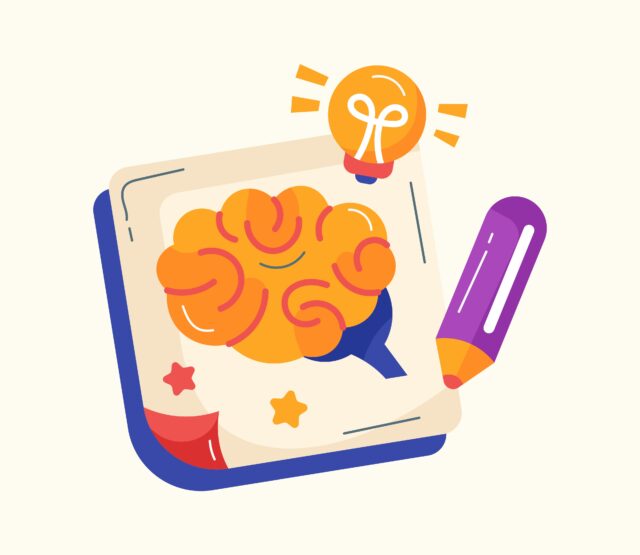 First coined by psychologists Salovey and Mayer in 1990, the term ‘Emotional Intelligence’ talks about our capacity to process, perceive, and regulate emotional information effectively and accurately. Emotional intelligence can be used on others and in ourselves to process information to guide our thinking and actions, along with influencing feelings in others.
First coined by psychologists Salovey and Mayer in 1990, the term ‘Emotional Intelligence’ talks about our capacity to process, perceive, and regulate emotional information effectively and accurately. Emotional intelligence can be used on others and in ourselves to process information to guide our thinking and actions, along with influencing feelings in others.
Emotional intelligence is an important part of every workplace and is used to provide a framework by which standards of intelligence can be applied. Unfortunately for geeks, this means that simply being smart (high IQ) won’t cut it at work — they also need leadership skills that can be derived from emotional intelligence. In this blog post, we discuss why geeks need leadership skills.
What are EQ Skills?
Emotional Quotient or Emotional Intelligence refers to our ability to use, understand, and positively manage our emotions to communicate effectively, relieve stress, and empathize with others. Having EQ skills can help us succeed in school and work, build stronger relationships, as well as achieve personal and career goals. Moreover, EQ skills can help us connect to our feelings, make informed decisions, and turn intention into action. EQ is commonly defined by these four attributes:
- Self-awareness: This refers to the ability to recognize our own emotions, along with how these affect our behavior and thoughts. By being self-aware, you’ll have self-confidence and know your strengths and weaknesses.
- Self-management: Refers to being able to control impulsive behaviors and feelings, as well as being capable of managing our emotions in healthy ways. It also means that we’re able to follow through on commitments, taking initiative, and adapting to changes in circumstances.
- Social awareness: This refers to having empathy, understanding needs, emotions, and the concerns of other people. It also means feeling comfortable socially, being able to recognize emotional cues, and knowing the power dynamics within a group.
- Relationship management: Talks about how to develop and keep good relationships, influence and inspire others, communicate clearly, manage conflict, and work well in a team.
Are EQ and IQ Mutually Exclusive?
Many people score highly in both EQ and IQ tests. They’re both used to measure intelligence and there can be some overlap between both of these. Our synapses and neurons’ ability to send and receive signals can determine our IQ and EQ. Scientists believe that the temporal, frontal, and parietal lobes are responsible for managing both our EQ and IQ.
Some people might have a lot of one or the other, but it’s possible to cultivate and train both. While genetics may influence both IQ and EQ, there are various brain activities that you can do to boost either trait.
Why Geeks, Nerds, and Engineers Typically Do Not Have EQ Skills
Unfortunately, many geeks, nerds, and engineers, usually don’t get the chance to develop their EQ skills simply because they often think they can outsmart everyone. As a result, they will wonder why their career has stagnated or why they haven’t gotten promoted.
Another reason why this group of individuals lacks EQ skills is that they’ve learned to ignore emotions relevant to them. This leads to a socially awkward personality and being rejected by peers. This can be emotionally painful, and as a result, they will push themselves to be the best in every aspect of life that doesn’t need EQ or social skills.
How The Lack of EQ Skills is Holding them Back
Based on people’s real-life experiences, having a higher EQ is an essential trait to have when wanting to move up the ladder. However, we’re also required to have adequate training and experience, both of which will also help us towards getting promoted. All too often, we’ll see professionals who are highly talented and qualified at what they do but aren’t able to adapt their actions or communication according to a social situation — as such they aren’t self-aware enough to accept constructive feedback.
As a result, they were either passed over for promotion or quickly removed after starting a position that needed a higher EQ than they possessed. If you don’t think that EQ is all that important, then consider these statistics from past studies:
- Emotional intelligence makes up 90% of career advancements when technical skills and IQ are similar
- Almost 90% of top performers have higher levels of emotional intelligence.
- Our job performance relies on emotional intelligence 58% of the time.
- On average, those with high emotional intelligence can make $29,000 more compared to those who have low EQ.
- Only 15% of our financial success is attributed to technical ability, while 85% is due to our personality, skills in human engineering, the ability to negotiate, communicate, and lead.
How EQ Skills Can Help With All Aspects of Life – Not Just Work
The smartest people aren’t always the ones who reap the most success. IQ on its own isn’t enough to get the success we want in life. While it’s our IQ that will get us into college, it’s our EQ that helps us manage our emotions and stress whenever we face huge challenges. Because EQ and IQ work together, they work best when they build from each other. Here are just a few things that emotional intelligence affects:
- Our performance at work or school
- Our physical health
- Our mental health
- Our relationships
- Our social intelligence
How AI May Eliminate Jobs that Do Not Require EQ Skills
If you’re worried about Artificial Intelligence (AI) taking over jobs, you should be. There are various things that they can do that we, as humans, simply can’t compete with. However, this doesn’t mean that everyone will lose their jobs — those that require EQ skills (which AI doesn’t possess) are sure to pave the way to the jobs of the future. Here are just a few reasons how AI can eliminate positions that don’t need EQ Skills.
AI Doesn’t Get Tired or Bored
Humans are prone to problems such as personal stress, lack of rest, and boredom from repetitive tasks. For example, staying up late at night will have an impact on how we perform at work the next day. Computers, however, don’t need to sleep, and their operational ability remains the same unless they have no power.
Computers Don’t Make as Many Mistakes
Unfortunately, making mistakes is part of human nature. This isn’t true of computers, however, and they aren’t susceptible to errors. Once they get instructions, they will execute them perfectly, which makes them essential for jobs such as data entry. AI will likely take over jobs that involve transcribing, copying, pasting, and typing.
AI-Controlled Machines Can Do Dangerous Tasks
Jobs that involve factory work, machine assembly, and mining expose all workers to danger. Whether it’s extreme temperatures, dangerous fumes, or falling objects, there are plenty of situations or circumstances where workers can be killed or seriously injured. AI can be used in these fields to ensure that processes are more efficient and that humans stay out of danger.
AI is Cheaper
While building and training an AI machine may cost more at first, its overall costs for operation are much lower compared to paying someone to do the same job. Companies can save a fortune by keeping a machine running through electricity and providing it with occasional maintenance.
However, hiring a human will take resources to find and then train them, along with having to pay them a yearly salary as well as paying them the required benefits.
Key Takeaways
As discussed above, there are many reasons why geeks should have leadership skills. Here are important things to remember:
- Not only will EQ and leadership skills help us in our work or school life, but they will also provide us with essential skills needed to advance further in many facets of our life.
- A geek leader won’t just succeed in various ways, but will also get ahead of the crowd, acquiring skills that will make them indispensable.
- Even if AI technology replaces jobs that don’t require EQ in the future, having leadership skills will allow us to fit into industries where AI can’t contribute due to a lack of emotional capacity.












